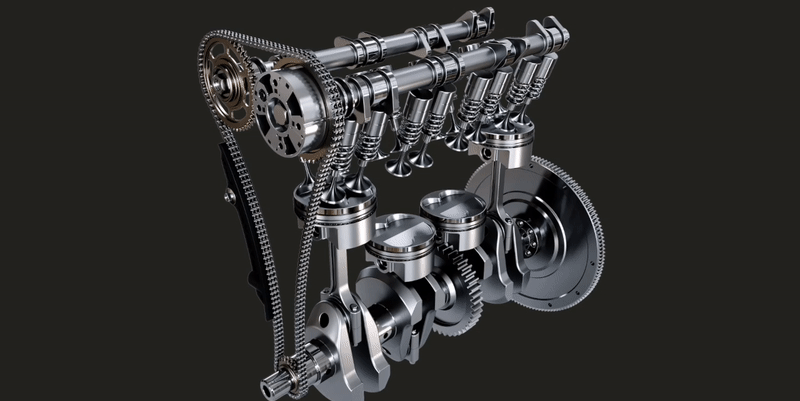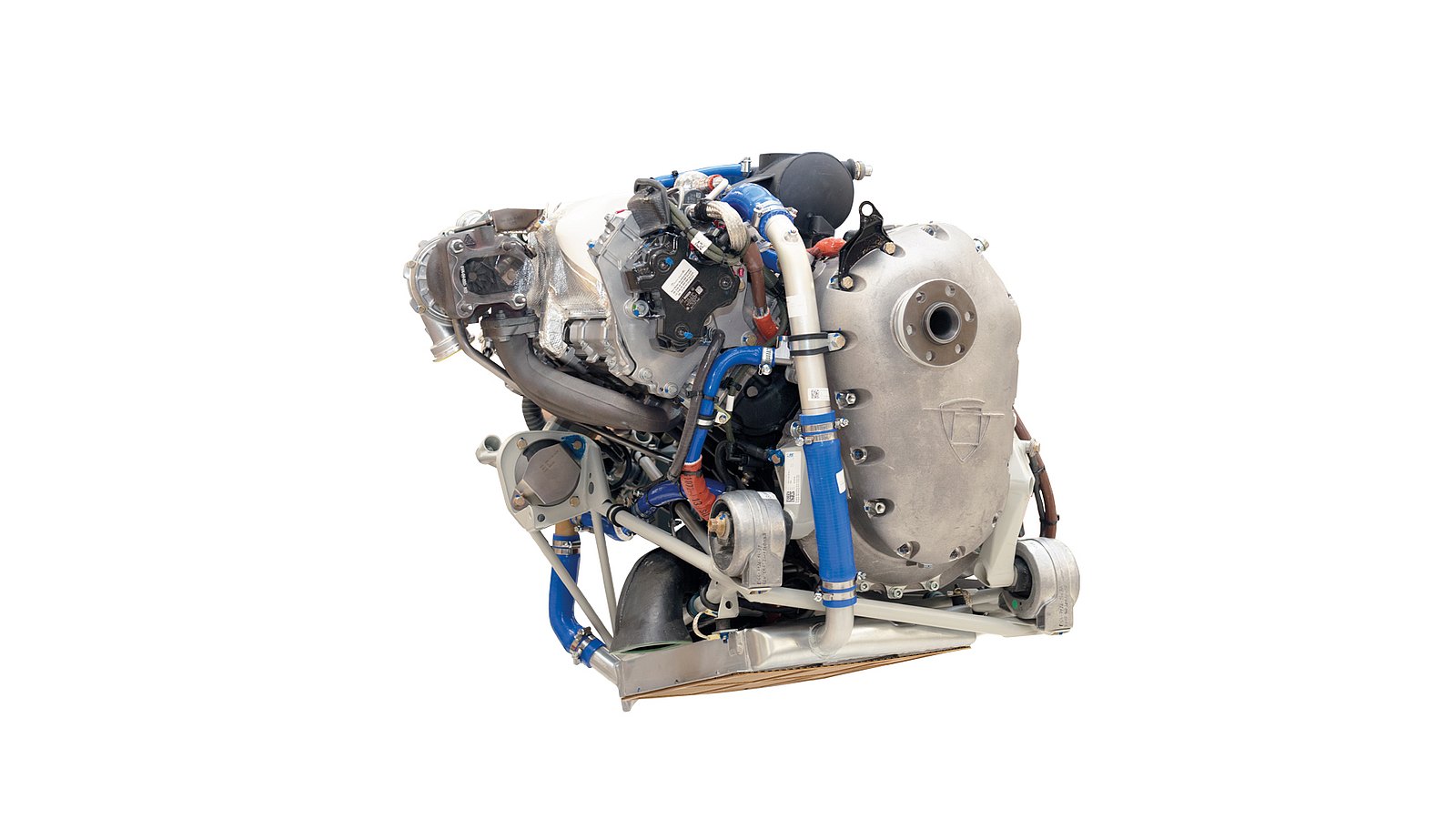Explore a Wide Variety of Engines for each Automobile and Objective
The automotive landscape is increasingly complicated, with a diverse variety of engine types created to fulfill particular performance and performance demands across different car categories. From the high-performance engines that power cars to the fuel-efficient alternatives customized for daily commuting, the options are large and varied. In addition, sturdy engines offer the requirements of work lorries, while environment-friendly options are acquiring traction in the search of sustainable transportation. Understanding these differences is crucial for making notified decisions, specifically as emerging technologies proceed to shape the future of automobile engineering. What implications might these innovations hold for producers and customers alike?
Kinds Of Automotive Engines
Automotive engines can be categorized into a number of distinctive kinds, each developed to fulfill details efficiency and performance requirements. The most typical categories include internal burning engines, electrical engines, and hybrid systems.

Electric engines, on the other hand, operate electric power saved in batteries, offering instant torque and absolutely no emissions. These engines are coming to be progressively preferred because of advancements in battery innovation and the expanding focus on sustainability.
Hybrid systems integrate both internal burning and electrical engines, allowing lorries to optimize fuel performance and minimize emissions by flawlessly switching between power sources. Each engine kind presents its negative aspects and benefits, affecting factors such as car style, meant usage, and market need. When choosing the proper engine for their certain demands., recognizing these distinctions is crucial for consumers and manufacturers alike.
Performance Engines for Sports Cars
Performance engines for sports automobiles are particularly engineered to provide enhanced speed, power, and agility, setting them apart from standard vehicle engines. These engines often utilize innovative modern technologies such as turbocharging, turbo charging, and variable valve timing to make best use of performance and responsiveness.
Normally, performance engines are developed with higher compression proportions, which permit better power removal from gas. This leads to impressive horsepower and torque numbers, allowing rapid velocity and greater full throttle. Additionally, the lightweight products used in these engines, such as aluminum and carbon fiber, add to minimized overall automobile weight, boosting handling and maneuverability.
Engine configurations like V6, V8, and also hybrid systems prevail in performance sporting activities cars and trucks, each offering distinct advantages in terms of power distribution and driving dynamics. The adjusting of these engines is likewise crucial; several producers maximize the engine administration systems to provide an electrifying driving experience, commonly including sport modes that adjust throttle action and gear shifts.
Effective Engines for Daily Commuters
In the world of everyday travelling, efficient engines play a vital duty in enhancing gas economic climate and decreasing discharges while supplying trustworthy efficiency. As city populaces grow and ecological concerns heighten, the need for vehicles outfitted with efficient powertrains has surged.
Modern engines created for day-to-day commuters often incorporate modern technologies such as turbocharging, straight gas injection, and hybrid systems. Turbocharging improves engine performance forcibly more air into the burning chamber, permitting for smaller, lighter engines that do not compromise power output. Straight gas shot boosts gas atomization, leading to much better burning and boosted performance.
Hybrid engines, incorporating inner burning with electrical power, more enhance gas economic situation, particularly in stop-and-go traffic, where conventional engines can struggle with inadequacies. Electric electric motors help during velocity and can run individually at reduced speeds, decreasing general gas usage.
Additionally, improvements in engine monitoring systems and lightweight products add substantially to effective discover this info here engine layout. By concentrating on efficiency, toughness, and environmental sustainability, makers proceed to provide engines that visit the site not only fulfill the needs of everyday travelling but also line up with worldwide initiatives to minimize carbon footprints.
Heavy-Duty Engines for Job Cars
Sturdy engines for job automobiles are routinely crafted to provide phenomenal torque and integrity under demanding problems. These engines are made to perform in settings where standard engines may falter, such as building sites, logging procedures, and agricultural setups. The key emphasis of durable engines is their ability to create high levels of power while maintaining resilience over prolonged periods of operation.
Typically, heavy-duty engines utilize innovative products and robust construction strategies to stand up to the rigors of hefty workloads. Attributes such as enhanced cyndrical tube blocks, boosted cooling systems, and progressed gas shot technologies add to their effectiveness. These engines commonly run at reduced RPMs, which helps to maximize gas efficiency while giving the needed power for carrying and towing.
Along with mechanical robustness, durable engines are usually geared up with innovative electronic control systems (ECUs) that take care of efficiency, exhausts, and diagnostics. This combination enables better monitoring and maintenance, ensuring that work cars stay functional and effective.
Eventually, sturdy engines are an essential component in the efficiency of numerous industries, offering the needed power and dependability to deal with the hardest of jobs.
Eco-Friendly Engine Options
The expanding emphasis on sustainability has brought about the development of environmentally friendly engine choices that focus on reduced emissions and improved gas efficiency. These engines are created to lessen the environmental impact of cars while still delivering the performance and reliability expected by customers.
Among the most significant environment-friendly choices are hybrid and electric engines. Hybrid engines combine traditional inner burning engines with electrical propulsion, enabling minimized fuel intake and reduced greenhouse gas discharges. Electric engines, on the various other hand, operate completely on battery power, generating zero tailpipe discharges and contributing to cleaner air high quality.
An additional promising advancement is the innovation of biofuel engines, which use renewable sources, such as plant products, to power vehicles (Engines For Africa). More about the author By utilizing biofuels, these engines can lower dependency on nonrenewable fuel sources and lower total carbon footprints

As the auto sector progresses, eco-friendly engine choices will play a critical duty in driving the transition in the direction of more sustainable transportation solutions.
Final Thought
The auto sector offers a diverse variety of engines designed to fulfill various car demands and purposes. From high-performance engines that boost cars abilities to effective versions prioritizing fuel economic climate for daily travelers, each kind offers a specific function. Heavy-duty engines satisfy robust job vehicles, while environment-friendly options, such as electrical and biofuel engines, advertise sustainable transport. This comprehensive range makes certain that all driving needs are addressed, adding to developments in auto technology and environmental stewardship.

Comments on “What Sets Engines For Africa Apart in the Sector”